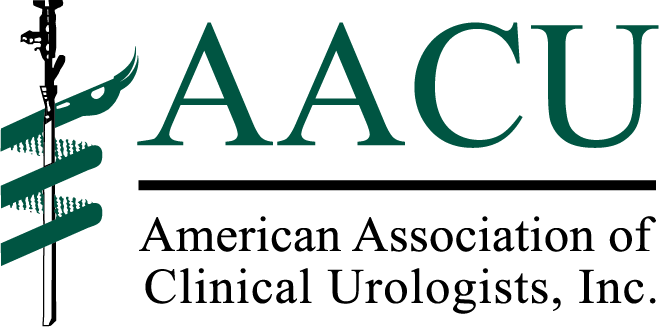
AACU conference assembles 'urology advocacy armada'

Facing uncertainty in Medicare and increasing regulatory and insurer burdens, the leaders of organizations representing urologists across the country gathered in mid-August for the 9th Annual AACU State Society Network Advocacy Conference.
Based on a partnership with Urology Times, articles from the
Facing uncertainty in Medicare and increasing regulatory and insurer burdens, the leaders of organizations representing urologists across the country gathered in mid-August for the 9th Annual AACU State Society Network Advocacy Conference.
The diverse program included presentations by respected physicians and nationally recognized health policy experts on issues faced in independent practice, academic institutions, and large hospital systems.
According to Missouri urologist Jeffrey Glaser, MD, the meeting provided "useful, though at times unsettling, information on upcoming changes" to Medicare reimbursement, facility regulations, and maintenance of certification.
The most troubling topic, perhaps, was the hurried implementation of Medicare's post-SGR payment structure. Major provisions of the Medicare Access & CHIP Reauthorization Act of 2015 (MACRA), the law establishing the new system, go into effect in just a few months-January 2017. Quality measures will play an increasingly significant role in determining provider reimbursement under MACRA, yet those standards are still unclear or even undefined.
AUA Data Committee Chair J. Quentin Clemens, MD, took on many urologists' fear that they will be measured on items totally unrelated to the provision of specialized surgical care. Dr. Clemens drew attention to the AQUA Registry, a urology-focused Qualified Clinical Data Registry that will help those practices choosing the revised fee-for-service (FFS) payment structure established by MACRA.
That choice, between bundled payments and merit-based FFS incentives, contributed to great unease and uncertainty of those attending the 36-hour event. In a breakout session tackling employed physician leadership in the medical center setting, participants reported that they did not believe their institution had made that very important decision. Executives and physicians associated with large urology groups shared statistics and strategies to successfully integrate both payment models into their practice.
Similarly, industry consultants provided high-value information on health care industry consolidation and winners and losers under the Affordable Care Act that will, according to Dr. Glaser, provide "benefit for our patients and improve our ability to advocate for them, and for our profession!"
Special sessions dedicated to effective advocacy focused on how to form arguments used when meeting with legislators, as well as recent certificate of need reform proposals and the role of specialty certification in public and private reimbursement. The AACU also honored Virginia Delegate John O'Bannon, MD, with the organization's Distinguished Leadership Award. In sponsoring Delegate O'Bannon's nomination, Virginia Urological Society Past President William Reha, MD, asserted, "[Del. O'Bannon] has been a strong advocate for doctors, not only introducing and supporting physician-friendly legislation but strongly opposing those who would necessarily interfere with the doctor-patient relationship."
AACU President-elect Charles McWilliams, MD, spoke to the importance of patient advocacy and launched a prostate cancer early detection campaign. As the U.S. Preventive Services Task Force prepares an updated prostate cancer screening recommendation, Dr. McWilliams urged urologists to engage their patients with educational materials and advocacy post cards available on site and online. The
Describing the AACU as a fast-moving vessel in the "urology advocacy armada,” AACU President Martin Dineen, MD, acknowledged the participation of many state, regional, and national organizations, including the AUA, LUGPA, Society of Academic Urologists, Society of Urodynamics, Female Pelvic Medicine & Urogenital Reconstruction, and all eight sections of the AUA. AUA President Richard Babayan, MD, and Deepak Kapoor, MD, LUGPA health policy chair, took the stage alongside Dr. Dineen to explain their operational role within the fleet of organizations representing urologists. Of particular note, Dr. Dineen spoke passionately about the AACU's opposition to unsupervised nurse practitioner practice in Veterans Affairs facilities and the value of establishing relationships with federal officials while they serve constituents and raise campaign funds away from Washington, in-district.
UROPAC-Urology's Advocate on Capitol Hill will be the vehicle for such campaign fundraising, according to political action committee Vice Chair Jeffrey Frankel, MD, who spoke about the "value of personal and professional connections" while advocating on behalf of the profession. During strategic planning meetings that began on the sidelines of the conference, participants charted the future course of the AACU, recognizing UROPAC as a valuable and prestigious asset.
On the first night of the event, Jeffrey Kaufman, MD, past president of the AACU and AUA Western Section, succinctly stated, "Advocacy means having a voice." The AACU has long encouraged urologists to participate in grassroots campaigns with the mantra of "Make Your Voice Heard."
The 2016 AACU State Society Network Advocacy Conference addressed complicated subjects that will impact our patients, practice and profession for decades to come. AUA Mid-Atlantic Section President Arthur Burnett, MD, MBA, for one, insisted that he "was enlightened quite a bit and will be prepared to share the information [with the Mid-Atlantic Section board of directors]." With such commitment, the organizations representing urologists, our advocacy armada, will never run aground.
Patrick H. McKenna, MD, is the 2016-2017 president-elect of the American Association of Clinical Urologists. He previously chaired the AACU State Society Network.
More from Urology Times:
Newsletter
Stay current with the latest urology news and practice-changing insights — sign up now for the essential updates every urologist needs.






